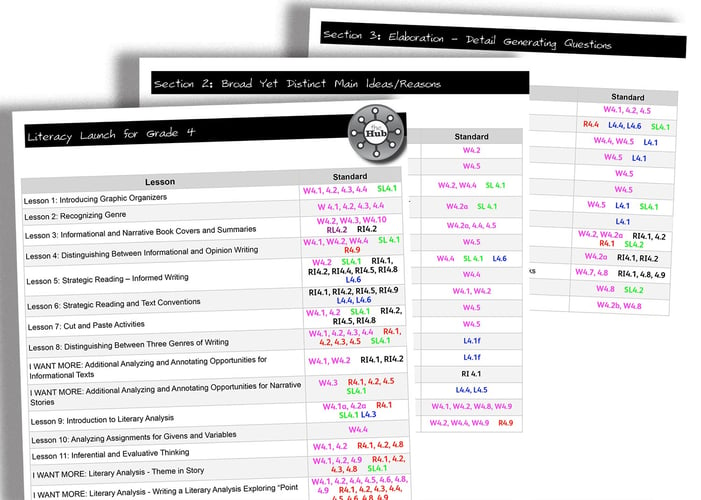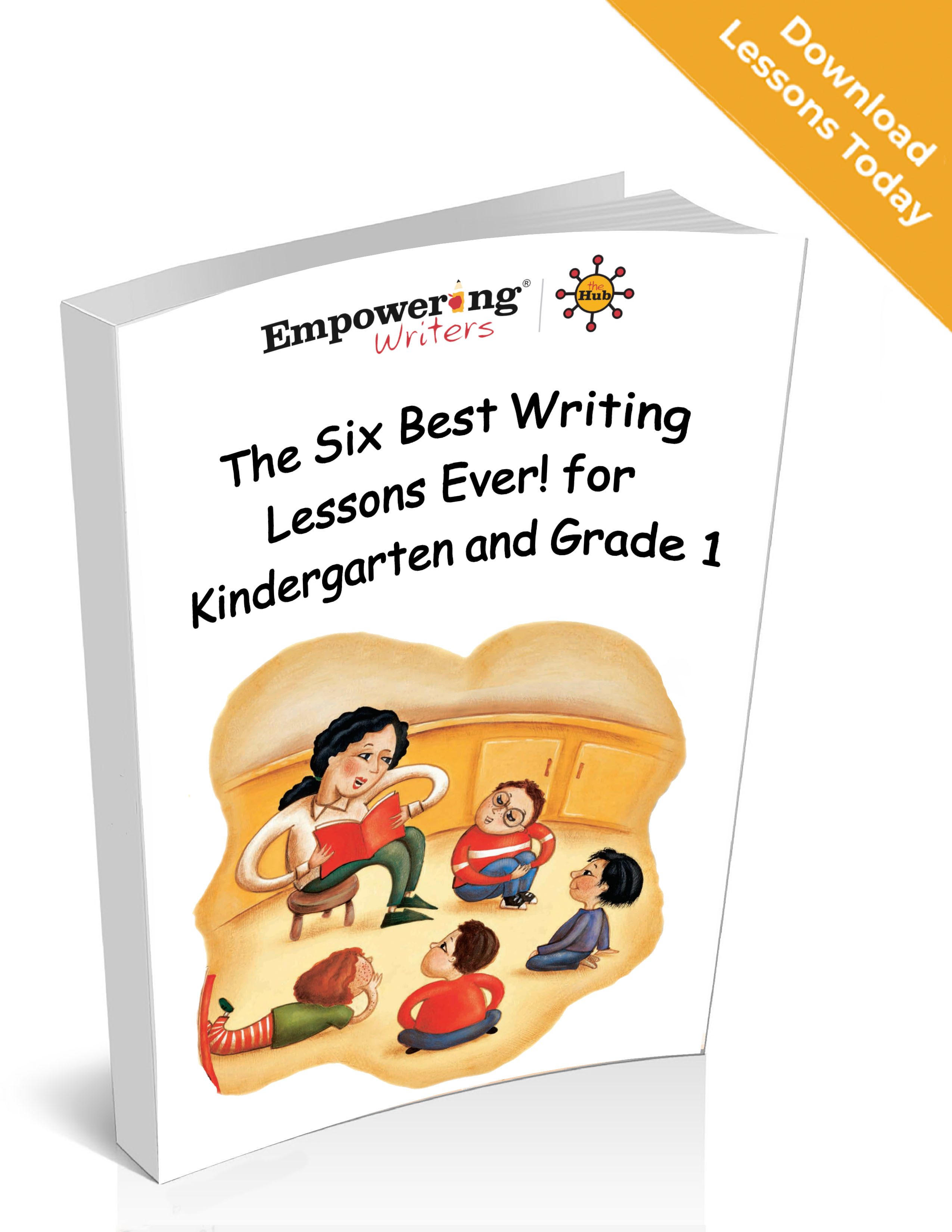
FOCUS Newsletter SPRING 2024
Georgia Association of Literacy Advocates (GALA)
~Issue 16~
In this ISSUE of the GALA FOCUS NEWSLETTER:
1. UPDATES from GALA , Local Reading Councils, & ILA
- GALA's Literacy Learning Series #9 - 13 UPDATE!
- Just Released! 2024 Notable Books for a Global Society (NBGS)
- Georgia Implements New Standards for Teacher Preparation Programs to Enhance Literacy Instruction Update provided by Forrest R. Parker III & Jodi Cronin
2. Student BOOK TALKS!
- The Unwanteds (McMann, 2012), Reviewed by Alaina from Heritage Highschool
- How to Steal a Dog (O'Connor, 2009), Reviewed by Richard from General Ray Davis Middle School
- Satchel Paige (Cline-Ransome, 2009), Reviewed by Jocelyn & Rachel from South Douglas Elementary School.
3. Feature Articles
- Contextualizing, Sourcing, Corroborating, Oh My! A Text Set Exploring Disciplinary Literacy in Historical Children’s Picturebooks by Tori Golden Hughes
- Bayard Rustin as Angelic Troublemaker and American Hero: Watch the Movie, But Read the Books by William P. Bintz
- Teaching What Students Do Not Know Using Hands-on and Vicarious Experiences, Discussion, Reading and Writing by John Hobe
4. Georgia Journal of Literacy Call for Submissions for the FALL 2024 ISSUE!
5. Professional Development Resource Reviews
- Empowering Writers! , Reviewed by Laura Thomas
- Building Literacy with Multilingual Learners (Lems, Soro, & Charles, 2023), Reviewed by Robert A. Griffin
6. COMMUNITY ENGAGEMENT OPPORTUNITIES FOR TEENS IN GEORGIA
- Storying Tucker: Who is Tucker?
- In the Shadow of Stone Mountain: Historicizing Shermantown
1. UPDATES FROM GALA, LOCAL READING COUNCILS, & ILA
GALA's Literacy Learning Series #9 - 13 UPDATE!
Literacy Learning Series #9 with Dr. Tim Rasinski
Whatever Happened to the ART of Teaching Reading?
Dr. Rasinski explored the balance between the science and art of reading instruction. He emphasized that while adherence to scientific methods is crucial, integrating creative teaching methods, such as Word Ladders, is equally important for engaging students. Dr. Rasinski also shared his website (timrasinki.com), which features useful teaching materials, articles, and professional development information. (Held on 11.14.2024)
Literacy Learning Series #10 with Dr. Rebecca G. Harper
Writing Workouts: Building Strong and Skilled Writers
Dr. Rebecca Harper discussed the parallels between disciplined athletes and skilled writers. She introduced a variety of engaging writing activities—such as slinky paragraphs and paint chip plotting—to equip teachers with strategies for developing students' abilities in persuasive writing, fiction, poetry, and more. Dr. Harper also shared practical writing strategies from her books, enhancing teachers' toolkits to foster both critical and creative writing skills effectively.(Held on 1.16. 2024)
Literacy Learning Series #11 with Yvette Manns
Don’t Stress about the Schwa!:
Engaging Ways to Teach Students to Decode
Unstressed Vowel Sounds in Multisyllabic Words
Yvette Manns focused on integrating phonics into the Structured Literacy framework. She detailed engaging methods to explain and teach the schwa sound, enhancing students' ability to decode multisyllabic words, and shared engaging read-aloud strategies to boost oral language and listening comprehension. The session continued with practical extension activities and giveaways, offering educators valuable tools to reinforce these phonics concepts in their literacy blocks. (Held on 2.13.2024)
Literacy Learning Series #12 with Amy Denty
The Science of Reading and the Georgia Early Literacy Act
Amy Denty began the session by creatively comparing the literacy development in children to the process of bees making honey, emphasizing that both are hard work but yield lasting benefits. She explored the five key components of literacy as defined by the Georgia Early Literacy Act and discussed how this legislation is enhancing literacy education across Georgia's schools. (Held on 3.19.2024)
Literacy Learning Series #13 with Dr. Julia López-Robertson
Celebrating our Cuentos:
Latino Children’s Literature for All Classrooms
Dr. Julia López-Robertson emphasized the importance of inclusive storytelling in education. She illustrated how Latinx children's literature not only reflects the diverse experiences of Latinx students but also enriches learning for all children by bridging familiar and unfamiliar worlds. The session highlighted the vital role that these stories play in providing broader perspectives and access to the curriculum, advocating for their integration into all classrooms. (Held on 4.11.2024)
Did you miss one of GALA's Literacy Learning Series Sessions?
Just Released! 2024 Notable Books for a Global Society (NBGS)
The Children’s Literature and Reading Special Interest Group announced its annual list of Notable Books for a Global Society (NBGS).
The Notable Books for a Global Society (NBGS), formed by the Children's Literature and Reading Special Interest Group (CL/R SIG) of the International Literacy Association (ILA), releases a select list of 25 books (grades K-12) every January that promote understanding and appreciation for diverse cultures and ethnic and racial groups throughout the world. Bethany Scullin, a member of GALA's Leadership Team, was selected to serve a 3-year term on the NBGS Committee and played an instrumental role in curating the FINAL 2024 LIST.
A more in-depth review of selected titles are detailed on the CL/R SIG's Blog.
- Please click on the collage below to view the list of the 2024 Notable Books for a Global Society book titles.
- All yearly Notable Books for a Global Society book lists, from 1996-2024, are open to the public. Make sure to check them out!
New Literacy Instruction Standards for Teacher Prep Programs
Georgia Implements New Standards for Teacher Preparation Programs to Enhance Literacy Instruction
Forrest R. Parker III, Lecturer of Education, Valdosta State University
Jodi Cronin, Assistant Professor of Education, Valdosta State University
In a significant move to improve reading instruction across the state, the Georgia Professional Standards Commission (PSC) has introduced changes to the rules governing teacher preparation programs. Under the new Educational Preparation Rule 505-3-.03, set to take effect by August 2024, all programs leading to certification in teaching fields must align with the science of reading to ensure that educators are equipped to teach reading and writing effectively at various grade levels.
The updated rule specifies different standards for teacher preparation programs based on the grade level or subject area. For educators within the fields of elementary and middle-grade reading, a deeper understanding and demonstration of literacy teaching skills are mandated, including language processing, phonological awareness, phonics instruction that includes decoding and encoding, fluency, vocabulary, comprehension, and written expression. This approach aims to prepare teachers to plan, modify, and implement literacy instruction in an explicit, systematic, and cumulative approach grounded in the Science of Reading, ensuring students can decode and comprehend text accurately by third grade and beyond.
*Select button below to continue reading.
2. STUDENT BOOK TALKS!
The BOOK TALKS featured below have been carefully selected for publication in this edition of our FOCUS Newsletter. Congratulations to these young scholars! Each featured student will received a $10 gift card and a certificate in recognition of their outstanding contributions.
We also extend our heartfelt thanks to all students who shared their Book Talks with us. We appreciate the effort you put into your submissions. Although not every Book Talk could be featured in this issue, please know that your voices are important to us, and we encourage you to keep sharing your thoughts and love for reading.
Stay tuned for more opportunities to showcase your work in future issues!
BOOK TALK: The Unwanteds by Lisa McMann (2012)
~Alaina from Heritage High School~
BOOK TALK: How to Steal a Dog by Barbara O'Connor (2009)
~Richard from General Ray Davis Middle School~
BOOK TALK: Satchel Paige by Lesa Cline-Ransome (2003)
~Jocelyn & Rachel from South Douglas Elementary~
Do you want to see your BOOK TALK in our next FOCUS Newsletter? Take a look HERE to submit your BOOK TALK and have a chance to win a $10 gift card to Amazon or Walmart!
3. FEATURE ARTICLES
Contextualizing, Sourcing, Corroborating, Oh My! A Text Set Exploring Disciplinary Literacy in Historical Children’s Picturebooks
In today’s society, the importance of disciplinary literacy is rapidly increasing as disciplinary literacy challenges students to move beyond reading, writing, listening, and viewing solely for academic purposes and provides students with opportunities to critically analyze, construct meaning, and form interpretations of the diverse and global world in which they live (Håland, 2016; Shanahan & Shanahan, 2014). Thus, disciplinary literacy must not be excluded from elementary school classrooms (Isidro, 2021; Martin et al., 2021). This article explores the use of children’s picturebooks focused on historical accounts and civic ideals and practices to support disciplinary literacy learning for young readers.
Disciplinary Literacy in History
Disciplinary literacy focuses on the aspects of reading and writing specific to each academic discipline (Fisher & Frey, 2015). Disciplinary literacy focuses on reading to learn and understand concepts by focusing on each academic discipline's specialized ways of reading, understanding, and thinking (Shanahan & Shanahan, 2014). In the discipline of history, disciplinary literacy challenges students to move beyond reading a historical text solely for information to identifying and considering the perspective, bias, message, and source of the historical texts they consume (Hamilton & Stolle, 2016). Disciplinary literacy in the discipline of history “restores agency to the reader” by positioning him or her as a critic of authors’ credentials and agendas (Wineburg & Reisman, 2015, p. 636). In doing so, students are provided with opportunities to critically analyze how they consume texts to construct meaning and form interpretations of our diverse and global world (Hamilton & Stolle, 2016).
*Select button below to continue reading.
Bayard Rustin as Angelic Troublemaker and American Hero: Watch the Movie, But Read the Books
William P. Bintz, Professor, Kent State University
We need, in every community, a group of angelic troublemakers.
Bayard Rustin (in Houtman et al., 2019, p. vii)
Growing up, my mother and father, like so many parents, always warned me to stay away from troublemakers. They particularly warned me not to become one. Unfortunately, they never met or read the work of Bayard Rustin, an angelic troublemaker and American hero.
In this book talk, my purpose is not to promote troublemaking and certainly not to encourage readers to be troublemakers. Rather, my purpose is to introduce Bayard Rustin, a little-known, relatively obscure historical figure but a courageous civil rights activist and hero of the American Civil Rights Movement, especially his planning of the historic March on Washington in 1963. Ultimately, my purpose is to pay long overdue tribute to Bayard Rustin, hoping he will finally be recognized and honored rather than currently ignored and forgotten in American History.
*Select button below to continue reading.
Teaching What Students Do Not Know Using Hands-on and Vicarious Experiences, Discussion, Reading and Writing
John Hobe, Professor, Georgia Southern University
This article outlines a teaching approach that enhances learning through sensory activities, vicarious experiences, and reflective discussions. It details how introducing vocabulary and objectives, engaging in hands-on experiences, and facilitating meaningful discussions can deepen students' understanding and promote active learning.
Preassessment of Student Knowledge to Teach What Students Do Not Know
First, to gauge students' prior knowledge, we can have them attempt the lesson's objective before starting. This approach reveals whether they can meet the full objective or only parts of it beforehand. The examples discussed in this article will utilize the following goals and objectives.
*Select button below to continue reading.
4. GEORGIA JOURNAL OF LITERACY CALL FOR SUBMISSIONS for FALL 2024 ISSUE!
5. PROFESSIONAL DEVELOPMENT RESOURCE REVIEW
Empowering Writers!
Reviewed by Laura Thomas
6th Grade Teacher & Writing Consultant
Dublin City School District
“Do we have to write again today?” “I don’t know where to start!” “How long does it have to be?” It’s questions like these that plague classrooms across the country and send teachers home to spend hours searching for creative ways to inspire students to want to write. On top of the task of changing the writing climate in their classrooms, every teacher in every classroom is also facing the challenge of creating the reading-writing connection that is necessary for a solid literacy foundation. As a teacher who has always loved the idea of teaching writing (because I love to write myself), I was tormented by the task of flipping through page after page of irrelevant details, redundant, underdeveloped ideas, and unorganized structure. That was until I found Empowering Writers, and I began to see the impact of direct skill-based instruction.
What is Empowering Writers? Empowering Writers is a systematic approach to reading and writing instruction in grades K-8. Through sequential, skill-based instruction, teachers can create the essential link between critical reading and effective writing, both generative and responsive.
The Approach. Implementation is simple: identification of the focus skill, modeling of the skill, guided practice, and independent practice. Every lesson begins with a clear objective for the lesson and includes teacher background videos and/or PDFs explaining the intended purpose and importance of the skill being taught. In addition, model lesson videos are provided where teachers can watch the lesson being taught in an actual classroom by teachers. Next, within the lesson, teachers find step-by-step procedures, printable, projectible, and assignable student pages, answer keys, scoring rubrics, and additional resources needed to model and teach the writing skill. The units also include literary analysis tasks and extended practice opportunities at the end of each unit.
*Select button below to continue reading.
**Visit empoweringwriters.com for more information.
Building Literacy with Multilingual Learners (Lems, Soro,& Charles, 2023)
Reviewed by Dr. Robert A. Griffin
Associate Professor of Literacy Education
University of West Georgia
As a teacher educator specializing in literacy education and TESOL, I have found Building Literacy with Multilingual Learners: Insights from Linguistics by Kristin Lems, Tenena M. Soro, and Gareth Charles (Guilford Press, 2023) an essential resource for supporting literacy development among a wide array of students. The authors bridge theory and practice, making this text invaluable for ESOL and literacy practitioners in diverse classroom settings. This text will be a core resource in my graduate-level TESOL Linguistics and Second Language Acquisition course, but it is equally valuable for supporting monolingual learners, including striving readers. While tailored for multilingual learners, the methods and strategies outlined in the book are grounded in the science of linguistics and are applicable and advantageous to all students.
Understanding linguistics is relevant in the context of the science of reading, which emphasizes evidence-based practices in literacy education. By reviewing first-language influence on second-language acquisition and linguistic structures like phonology, morphology, and syntax, the authors offer practical insights informed by the scientific study of language for supporting multilingual and monolingual learners alike.
With its focus on digital literacy topics, like technology in language learning, the authors advocate for a contemporary and holistic understanding of literacy that extends beyond traditional reading and writing. Educators aiming to equip students with the skills needed to thrive in a digitally interconnected world will find this holistic understanding of literacy informative. The authors also include resources for multimodal projects and activities, such as creating digital storybooks using a combination of text, images, and audio. The chapter on visual literacy includes extensive discussions on digital literacy, including gamification, digital reading, and contemporary technologies like ChatGPT.
*Select button below to continue reading.
6. COMMUNITY ENGAGEMENT OPPORTUNITIES FOR TEENS IN GEORGIA
Free Summer 2024 Programs for Teens: Registration is OPEN!
The Linguistic Justice Collaborative is back for summer 2024 with a range of new programs and projects! If you are or know a 12 to 18 year old in the Tucker, Stone Mountain, Clarkston area of metro Atlanta, they have two programs that may be of interest.
*Select the graphics below for more information and registration or visit https://www.linguisticjusticecollaborative.com/summer-literacy-workshops/.
STORYING TUCKER: WHO IS TUCKER?
This free summer literacy program is back for 2024! Available for youth aged 13-17 in the Tucker area, a small group of Tucker youth are invited to be co-researchers to record and capture Tucker’s stories, voices, and community histories. Led by lead youth researchers, Samira, Anela, and Sabina, and adult co-researchers Lisa York, Alaa Hedeeb, and Leah Panther, the end results will be guided by youth co-researchers, but may include creating podcasts, open access digital archives, adding to Tucker’s existing GIS Map, drafting a white paper for the Tucker city council, or book.
June 3rd through 7th, 2024; 10 am – 5 pm
Tucker-Reid H. Colfer Library
5234 Lavista Rd, Tucker, GA 30084
IN THE SHADOW OF STONE MOUNTAIN: HISTORICIZING SHERMANTOWN
This free summer literacy program returns for 2024! Available for youth aged 12-18 in the Stone Mountain, Tucker, Smoke Rise, Mountain Park, Lilburn, and Clarkston area. Led by Sally Stanhope, Kimberly Stephens, Halima Burke, Dr. Leah Panther, and our community partners in the Stone Mountain Action Coalition, youth will record and capture the stories, voices, and community histories of Shermantown, an African American community within Stone Mountain Village. This will be guided by youth co-researchers, but may include creating podcasts, open access digital archives, a white paper for the Stone Mountain city government, or book.
June 10th through 15th; 10 am – 4 pm
Bethsaida Baptist Church
853 4th St, Stone Mountain, GA 30083
FOCUS: A Newsletter of the Georgia Association of Literacy Advocates (GALA)
FOCUS Editorial Reviewers
Dr. Jennifer K. Allen
Dr. Robert A. Griffin
Dr. Helena R. Foster
Website: https://www.galiteracy.org/
Facebook: https://www.facebook.com/groups/613939080319035



















